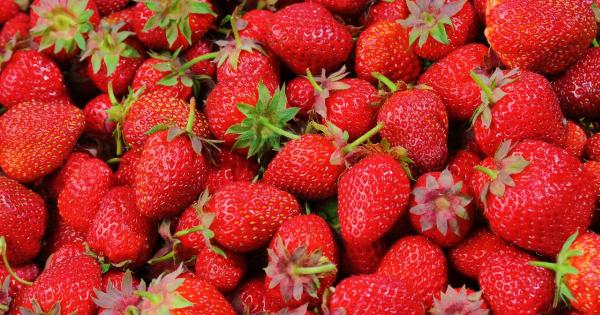Pregnancy is a sensitive and crucial period for both the mother and the developing baby. During this time, it is important to maintain a healthy diet to help ensure the proper development and growth of the baby.
As an expectant mother, understanding what to eat and what to avoid is essential to your baby’s healthy growth and development. In this article, we provide useful information on pre-natal nutrition, and the foods you should be including in your diet, as well as those you should be avoiding.
What to Eat During Your Pregnancy
During pregnancy, a balanced and well-rounded diet is paramount to ensure the healthy growth and development of your baby. Here are some essential nutrient-rich foods that pregnant women should consume to support the baby’s growth:.
Whole Grains
Whole grains are a crucial source of dietary fiber, vitamins, minerals, and other essential nutrients.
Eating grains such as whole wheat bread or pasta, brown rice, and oatmeal, provides the necessary fiber that can help prevent constipation and hemorrhoids during pregnancy.
Fruits and Vegetables
Eating fresh fruits and vegetables daily can provide important nutrients such as vitamins and minerals, as well as antioxidants which can help prevent cellular damage caused by free radicals.
Fruits and vegetables are also important for healthy digestion, and can help you feel full longer between meals.
Protein Foods
Protein is important for the formation and growth of organs, bones, and muscles in the developing baby. It is recommended that pregnant women eat a variety of protein foods, such as lean meats, poultry, fish, beans, nuts, and seeds.
Eating these foods ensures an adequate intake of protein, iron, and zinc, all of which are important for baby’s healthy growth.
Dairy Foods
Dairy foods, such as cheese, milk, and yogurt, are important vitamin D and calcium sources which are essential for the formation of the baby’s bones and teeth.
When choosing dairy products, opt for those that are low in fat and have no added sugars or sweeteners.
What to Avoid During Your Pregnancy
Following a healthy and balanced diet is important during pregnancy, but there are certain foods you should avoid to ensure the safety and well-being of your growing baby. These include:.
Raw or Undercooked Meat
During pregnancy, consumption of raw or undercooked meat should be avoided to prevent exposure to bacteria like Salmonella or E.coli, which can result in food poisoning. It is important to ensure that meat is thoroughly cooked before consumption.
Raw or Undercooked Eggs
Raw or partially cooked eggs can be contaminated with Salmonella, hence should be avoided during pregnancy. It is important to ensure that eggs are thoroughly cooked or pasteurized before consuming.
Raw or Undercooked Fish and Seafood
Fish and seafood are rich in omega-3 fatty acids, an important nutrient that is necessary for healthy development of the baby’s brain.
However, pregnant women should avoid consuming raw or undercooked seafood due to the risk of exposure to harmful bacteria or parasites. It is important to thoroughly cook fish and seafood before consumption.
Alcohol and Caffeine
Consuming alcohol and caffeine during pregnancy can lead to complications such as premature birth, reduced birth weight, or development problems for the baby.
It is recommended that pregnant women completely avoid alcohol and limit caffeine intake to 200mg per day or less.
Unpasteurized Dairy Products
Unpasteurized dairy products can contain Listeria, a harmful bacteria that can cause serious health complications in pregnant women. It is important to only consume dairy products that have been pasteurized.
In Conclusion
Having a well-rounded healthy diet is crucial for both the mother and the developing baby during pregnancy.
While certain foods should be avoided during pregnancy to ensure the safety of the baby, consuming nutrient-dense foods can help support healthy growth and development. Eating a balanced diet is an important step in ensuring a healthy pregnancy and a healthy baby.
























